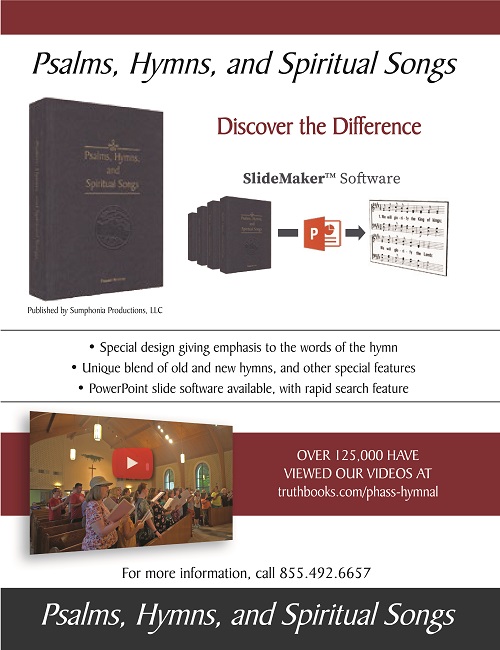

by David Flatt
Synopsis: There are many preconceptions and misrepresentations about heaven and hell. This article seeks to examine Biblical teaching about both places to clarify our understanding.
People are familiar with the reward of heaven and the punishment of hell. However, many are not as familiar with what the Bible actually teaches about these places. The Bible offers several details about both heaven and hell. Although what the Scriptures teach about these places is limited, each will perfectly serve their purpose: reward for the righteous and punishment for the wicked.
Most people want and expect to go to heaven when they die. Heaven seems like such a better place than this earth. The Bible offers vivid descriptions about heaven. We often think of John's depiction in Revelation 21-22. Under the direction of the Holy Spirit, John attempted to articulate the indescribable. Heaven is a place without sin and sorrow; a place without pain or tears. Heaven is a place without sin. Heaven is a place of eternal day, experienced in the light of God's Lamb. We cannot read his words without being captivated in our imagination.
Aside from the details of what heaven will look like, heaven is heaven because of God's presence. It is the dwelling place of God. John described the throne of God in its' magnificent glory (Rev. 4). The heavenly host worship, praise, and declare His holiness. Being in the presence of God's protection and love is what makes heaven to be heaven. Jesus told the apostles there was room for them in His Father's house (John 14:1-4). There remains room in the Father's house for us if we are faithful to Him. Yes, heaven is a reward to the faithful.
The writer of Hebrews sought to convey heaven as being a reward for the faithful. In the letter, the promised land of Israel is analogous to heaven. Some Israelites were not permitted to enter Canaan due to unfaithfulness. They doubted God's power to conquer the land. Rather than trust in God, they wanted to return to Egypt, a nation of slavery (Num. 13-14). Hebrews offers them as a negative example: We must remain faithful, loyal, and obedient to God in our pursuit of heaven. If we are faithful, we will be rewarded with a heavenly rest.
Seeing therefore it remaineth that some must enter therein, and they to whom it was first preached entered not in because of unbelief… There remaineth therefore a rest to the people of God. For he that is entered into his rest, he also hath ceased from his own works, as God did from his. Let us labour therefore to enter into that rest, lest any man fall after the same example of unbelief (Heb. 4:6, 9–11).
Conversely, hell is a place of punishment for the wicked. Many act as if hell does not exist. Some think that hell was invented as a means of scaring, intimidating, and controlling people. Or, if someone is willing to concede hell exists, they think of this place as a place for the "worst of the worst." Instead of relying upon preconceptions to define our understanding of hell, consider what the Bible teaches about this place.
Surprisingly, frequently Jesus spoke of hell. He repeatedly warned of the dangers of hell. In the Sermon on the Mount, Jesus mentioned hell, directly and indirectly, a combined total of five times (Matt. 5:22, 29, 30; 7:13, 19). Jesus referencing hell five times in a single sermon may not fit the common perception people have of Jesus. For our Lord, hell was a real place reserved for all who rejected His teaching.
Also, just as the apostle John was shown heaven in Revelation, he was also shown hell. Consider the following passages:
And I saw the dead, small and great, stand before God; and the books were opened: and another book was opened, which is the book of life: and the dead were judged out of those things which were written in the books, according to their works. And the sea gave up the dead which were in it; and death and hell delivered up the dead which were in them: and they were judged every man according to their works. And death and hell were cast into the lake of fire. This is the second death. And whosoever was not found written in the book of life was cast into the lake of fire (Rev. 20:12-15).
He that overcometh shall inherit all things; and I will be his God, and he shall be my son. But the fearful, and unbelieving, and the abominable, and murderers, and whoremongers, and sorcerers, and idolaters, and all liars, shall have their part in the lake which burneth with fire and brimstone: which is the second death (Rev. 21:7-8).
Nothing in Sacred Scripture presents hell as attractive. Nothing in the Bible indicates the wicked will become accustomed to suffering in hell. Being punished in hell is considered "the second death." Nothing good can come of such a death. Hell will be perfectly suited as an eternal punishment for the wicked, for people who practice idolatry, and those who reject the Gospel (2 Thess. 1:6-9).
We should take to heart what the Bible teaches about heaven and hell. We have been informed about both places. We have been told how to get to both places. We can choose to live obediently in the hope of heaven. Or, we can choose to reject God, understanding the consequence of our rejection. The choice is ours.
Christ died for our sins and was resurrected from the dead by the power of God to rescue us from the penalty of sin (Gal. 1:4-5). He offers new life and hope. In return, He asks for loving devotion to Him and His purposes. If we refuse to align our hearts with His plans, Jesus will judge us accordingly (John 12:48). Divine judgment will be just, equitable, and impartial. No one will sneak into heaven, nor will anyone be wrongly cast into hell. Let us purpose in our hearts to cleave to the Lord (Acts 11:21). In so doing, we can be assured of our salvation and a future home in heaven.
Author Bio: David Flatt and his family have labored with the Thayer Street congregation in Akron, Ohio since 2008. He can be reached at dflatt85@yahoo.com.

